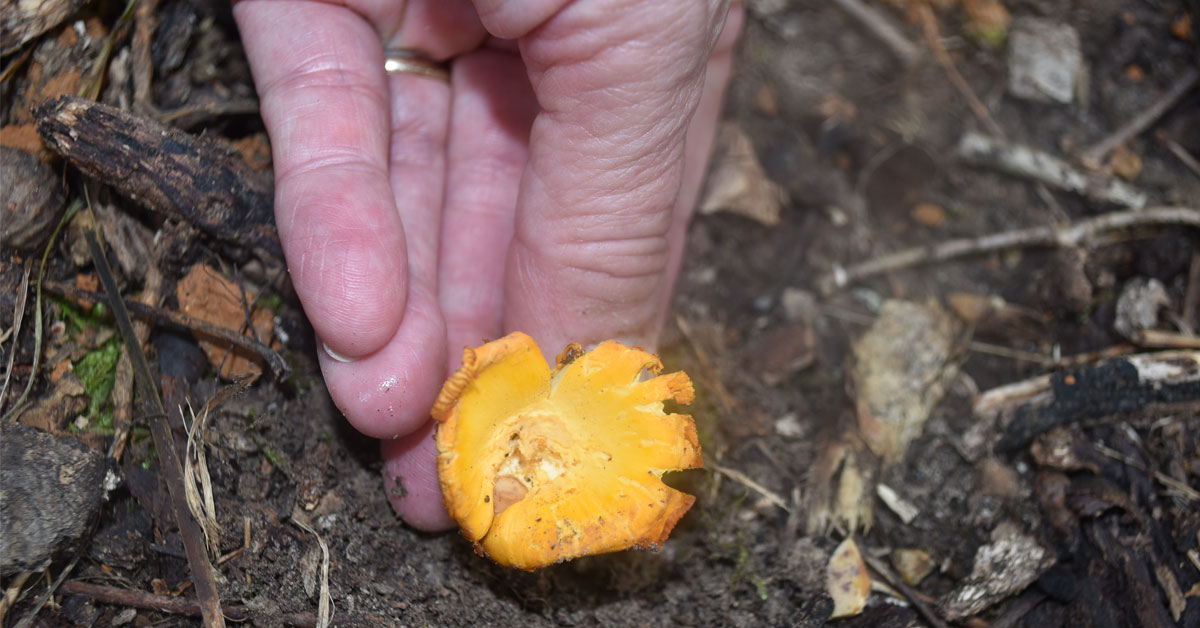
Chanterelles are a popular summer edible.
By Bruce & Elaine Ingram
Photos by Bruce Ingram
“These mushrooms really do have the taste and texture of chicken,” my wife Elaine said when we were dining on frittatas made from eggs from our chickens; zucchini, tomatoes, and onions from our garden; and, most importantly, chicken of the woods mushrooms. The fungi came courtesy of Roanoke’s Jeff and Hillary Huffman who recently came to our house, bringing several varieties of wild mushrooms for Elaine to turn into entrees.
In June, Elaine and I had met Jeff when he led a New River Valley Mushroom Club excursion to the George Washington and Jefferson National Forest. There, club members gathered smooth and black trumpet chanterelles – two choice summer edibles. Jeff says that the national forest and Virginia’s wildlife management areas are prime places for foragers to look for mushrooms.
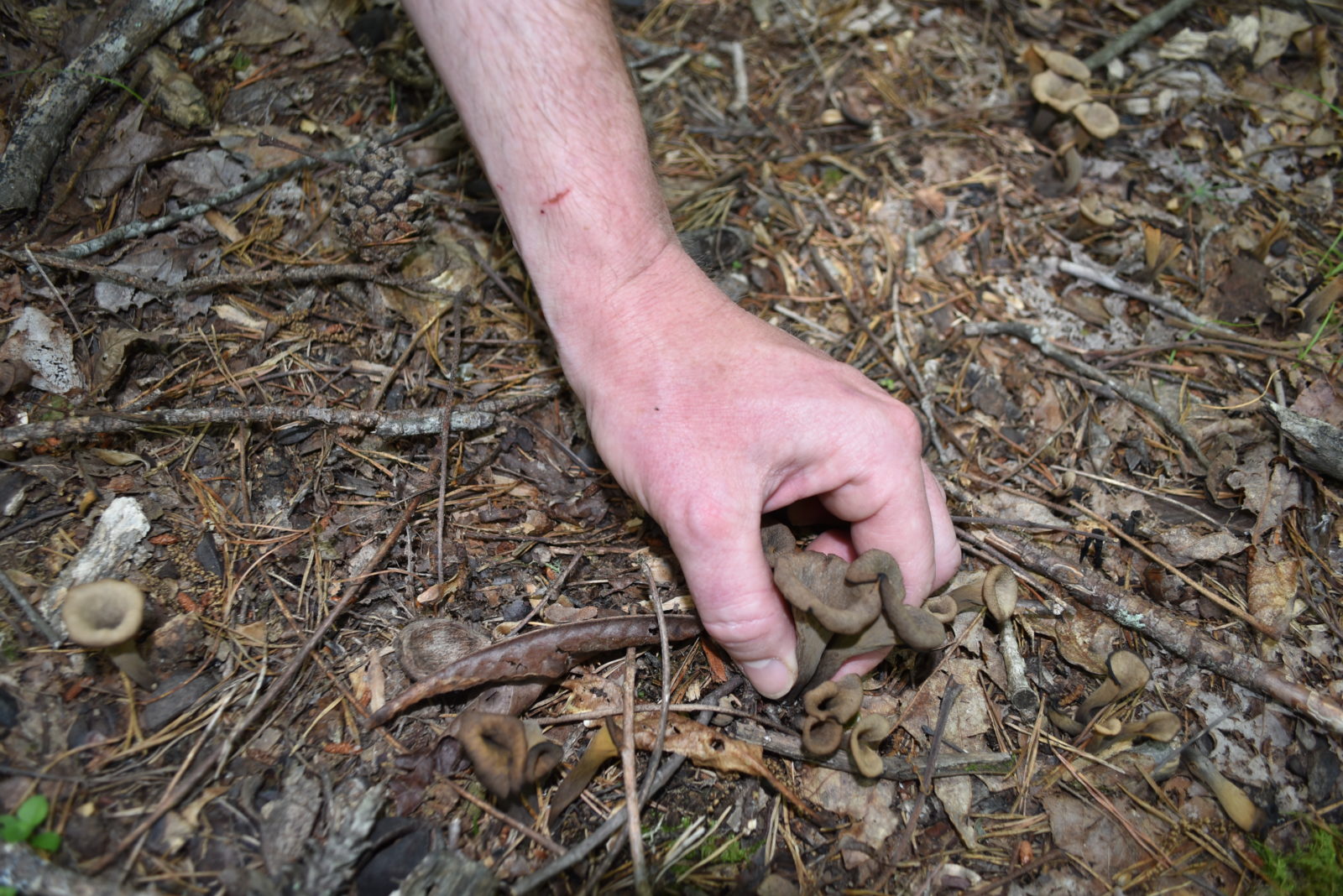
Black Trumpet chanterelles are a choice edible.
On the NF, foragers can gather mushrooms for personal use, but commercial gathering requires a permit. On our WMAs, berry picking and gathering of mushrooms and other fruits is allowed for personal use only. Gathering for commercial purposes is prohibited.
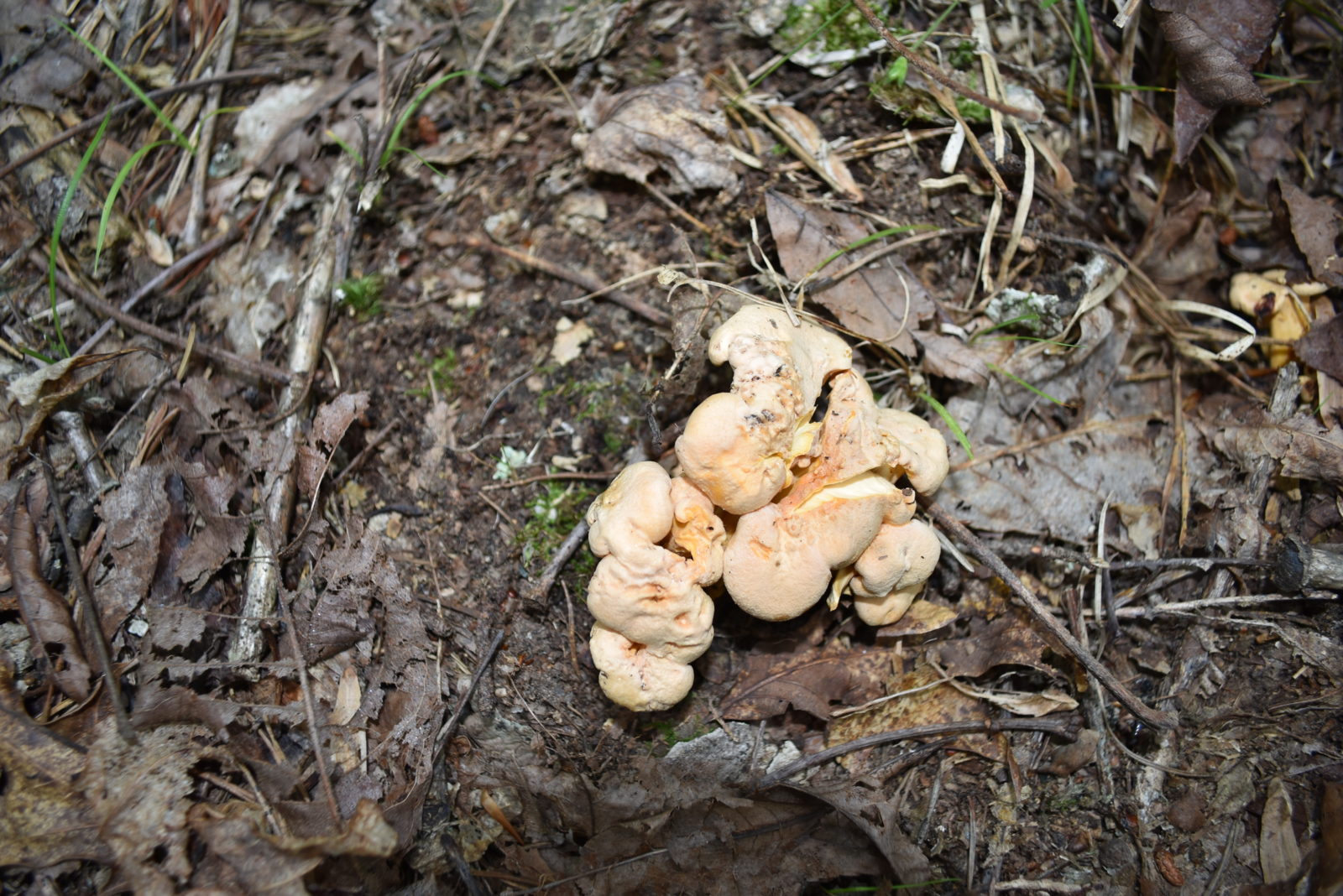
These smooth chanterelles were growing in Virginia’s national forest.
Any person 17 years of age or older accessing a DWR WMA or lake must have in possession one of the following valid Virginia licenses, memberships, or permits: freshwater fishing, hunting, or trapping license, boat registration, a Restore the Wild membership, or DWR Access Permit.
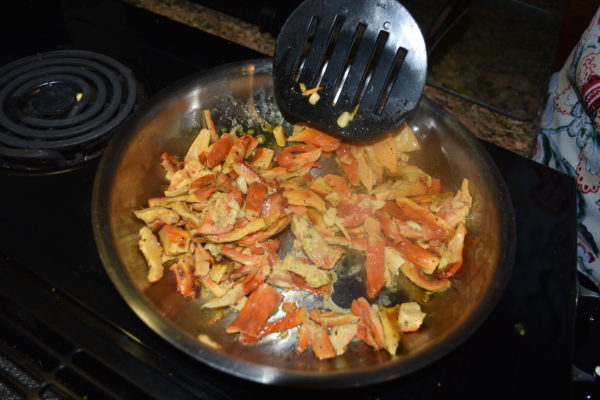
Chicken of the woods mushrooms being sautéed. Always cook wild mushrooms before eating them.
The Huffmans also brought chanterelles, beefsteak polypores, and old man of the woods. Giant puffballs and oysters are among the other summer edibles in the Old Dominion. But it was the large chicken of the woods mushroom with its bright orange and yellow overlapping brackets that made dinner – and several other meals afterwards – a special event.
Always Keep in Mind
Always go with experienced mushroom gatherers the first time you seek a particular variety. Numerous poisonous and hallucinogenic lookalikes to edibles exist. Members of the Amanita family, common in Virginia, can be especially harmful.
Always cook wild mushrooms before eating. Nevertheless, some people suffer gastrointestinal distress from even consuming edible varieties. Thus, start with small portions and keep at least one mushroom for identification purposes later.
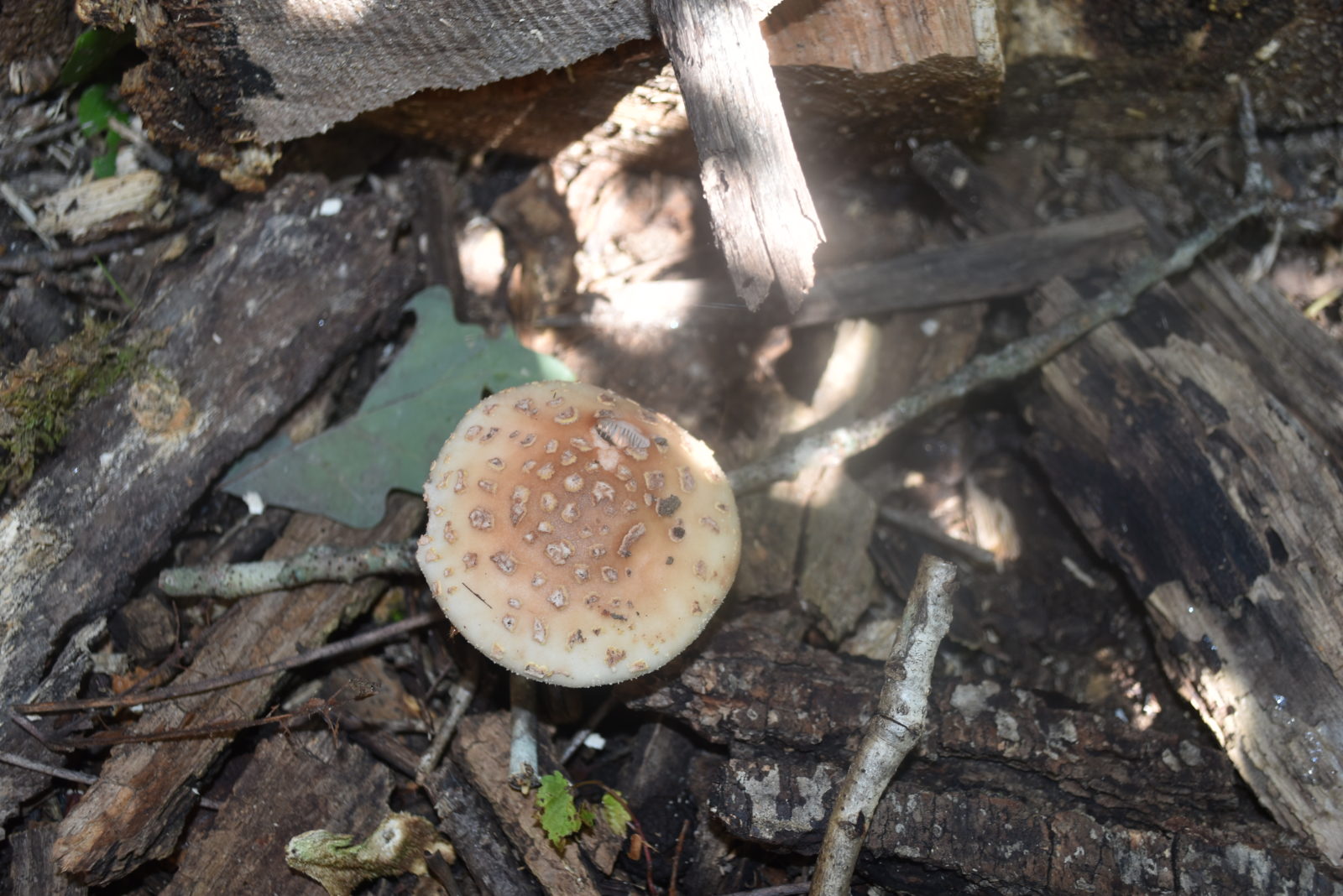
Members of the Amanita family, like this variety the author found growing in his yard, are common in Virginia. Many are poisonous and hallucinogenic and sometimes appear similar to edible varieties. Avoid this family of mushrooms.
Always carry a field guide with you. I recommend Audubon’s Field Guide to North American Mushrooms; www.audubon.org/national-audubon-society-field-guides.


